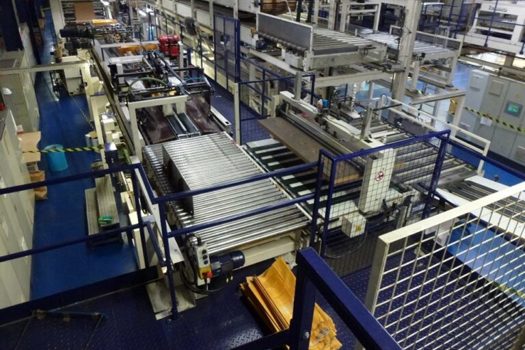The much-anticipated plan was announced this morning (21 September) by business secretary Jacob Rees-Mogg, the new head of the Department for Business Energy & Industrial Strategy (BEIS).
Through its new Government Energy Bill Relief Scheme, the Government will provide a discount on wholesale gas and electricity prices for all non-domestic customers.
This encompasses all UK businesses, the voluntary sector such as charities, and the public sector including schools and hospitals.
The support will be equivalent to the Energy Price Guarantee already put in place for households.
The announcement stated: “To administer support, the Government has set a Supported Wholesale Price – expected to be £211 per MWh for electricity and £75 per MWh for gas, less than half the wholesale prices anticipated this winter – which is a discounted price per unit of gas and electricity.
“This is equivalent to the wholesale element of the Energy Price Guarantee for households. It includes the removal of green levies paid by non-domestic customers who receive support under the scheme.”
It will automatically be applied to bills.
Firms that are already on fixed price contracts agreed on or after 1 April will also be eligible for support, if the wholesale element of the price being paid is above the ‘Government Supported Price’.
However, the Federation of Small Businesses (FSB) warned of hardship for some businesses that signed fixed contracts after prices rose but before April, and who find themselves excluded from the scheme.
“FSB calls on energy suppliers to allow those customers to switch without charge to new fixed contracts, covered by the Energy Supported Price, if that makes the difference for the small business to survive,” it stated as part of the immediate reaction to the news.
Businesses on default, deemed or variable tariffs will receive a per-unit discount on energy costs, up to a maximum of the difference between the Supported Price and the average expected wholesale price over the period of the Scheme,” BEIS explained.
“The amount of this Maximum Discount is likely to be around £405/MWh for electricity and £115/MWh for gas, subject to wholesale market developments.”
The scheme will run for six months, and be reviewed after three months. Energy industry experts have estimated it could cost the taxpayer £25bn.
Industry reaction:
Andrew Large, director general of the Confederation of Paper Industries, which is also part of the UK’s Energy Intensive User Group
“We welcome the commitment that the Government has made. There’s more work to do to understand the detail of how it will be implemented, given the complexity of the issues that are being dealt with.
As a result we are working closely with BEIS to make sure we can give clarity to our members as to how they’re actually going to be able to access it and what the implications will be for them.
The other issue I think it’s worth commenting on at this point is to say there is a long-term aspect to this. The period of very high energy prices may well last longer than six months. And so we now need to focus attention on an enduring competitiveness support measure for energy costs for energy intensive industries, to make sure that we’re not tipped back into these crises on a regular basis, but we actually have a long-term solution to the problem.”
Charles Jarrold, CEO, BPIF
“We’ve been pushing to get answers to three questions: what are the details, what about people who are on existing contracts, and what happens after six months.
We have answers to the first two. This will reduce the impact for the time being, and now we need to focus on what happens after six months.
“The Government has asked us to share individual case studies and I urge firms to share those details with us so we can give that feedback.
“I think the implication is that year-on-year we’re still looking at a doubling of price, which is not great. But the Government has demonstrated they have listened and recognised they have to support industry.
We’ve got to get through this current crisis and then tackle the longer-term issues around security of supply and the affordability of energy, so the UK is a good place to do business.”
Miles Linney, CEO, Linney
“This is great news and simple to understand – and hopefully looks easy to administer. It’s what was promised and it delivers for us at Linney.
“Yes it would be good to have been for longer and the reference to ‘initial’ period gives some hope that it will be extended if things don’t settle down into the new year. That said; whilst it’s a fantastic help and support to UK business we’ve all got to work together to find a path to a sustainable and competitive wholesale energy market. We don’t want to pass on costs to our clients and ultimately make the industry uncompetitive.
“It’s completely understandable that we can’t be supported forever and hopefully the market will settle down over time. Like Furlough this is a life-saver for many businesses and although it had to happen – it’s very gratefully acknowledged and received.”
Paul Utting, CEO, Walstead Group
‘We’re still working through the detail of the government’s announcement but our understanding so far is that the proposed cap is a significant discount on current forward rates for both gas and electricity so this has to be seen as good news.
“However, the proposed cap is still at a level which is more than 500% higher than before the current crisis so this issue is far from being resolved. The other issue is that the proposed cap only applies until end Q1 2023 whereas forward rates remain high for the whole year.
“As an industry it is important that the whole print supply chain continues to work through this issue together.”
Tina McKenzie, policy and advocacy chair, Federation of Small Businesses (FSB)
“This is a substantial move and will likely be of considerable help to small firms which have been crying out for months for measures to limit the pain caused by spiralling energy prices. Today’s announcement will give certainty for the next six months, but a tough year remains ahead of many small firms.
“Subsidising the unit costs of electricity and gas for six months is welcome, but there are those who miss out from before the six-month period, and help must not result in a cliff-edge afterwards. We are calling for a hardship fund to be created for those who fall outside of the current support, or for whom the current support will be insufficient.
“For all businesses that fall outside the scope of today’s support, or where the help is insufficient for the business to be viable, we urge Government and energy providers to introduce a discretionary funding pot, similar to the £150m created for those households who don’t pay council tax. The remainder of the Covid Additional Relief Fund – due to be taken back by the Treasury next week – could be used for this purpose.
“Small businesses are the definition of vulnerable when it comes to these energy price hikes. Small firms do not have the ability to hedge, or negotiate energy prices, so we will be encouraging Government to continue to help small businesses across all different sectors after the six months have elapsed.
“In our view, size, rather than geography or sector, is a good indicator of whether a business has capacity to face higher bills. There is no such thing as a ‘vulnerable sector’ when all small businesses with premises have been deeply affected.”










